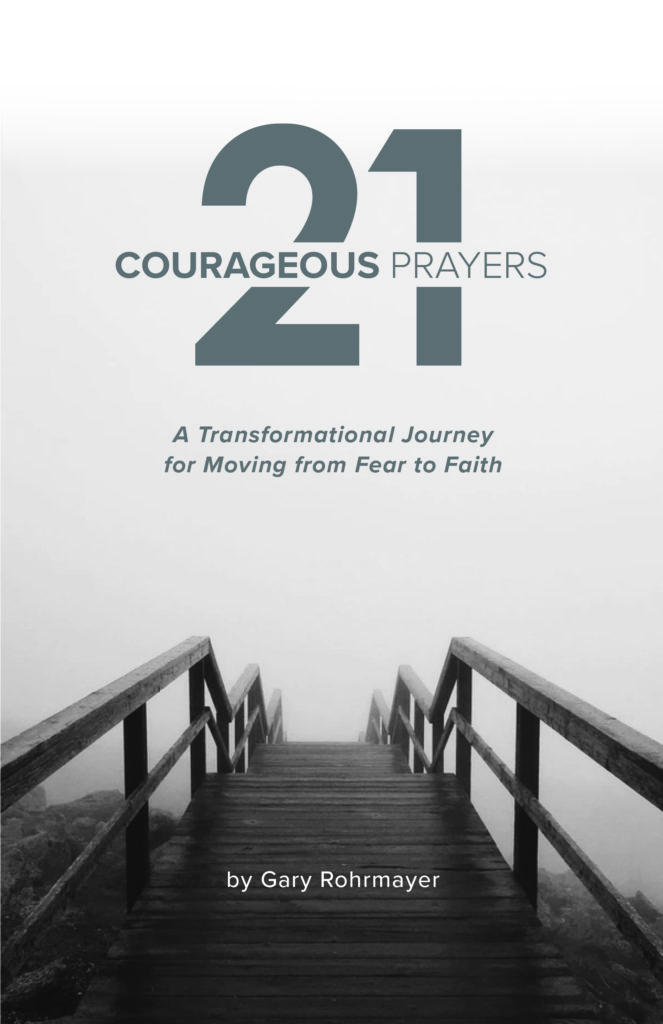21 Courageous Prayer Initiative: A Transformational Journey from Fear to Faith
We live in times where God’s people must find a greater level of courage in order to see God’s blessings in their lives and the gospel advance in our world.
For church leaders, courageous faith is imperative if the church is going to make inroads into our culture today. There is no room for cowardice, timidity, or faintheartedness when we face resistance to the gospel.
Our prayer for you during these 21 days is that you would get a bigger picture of who God is and what He wants to accomplish in your life. Our hope is that God will infuse your heart with a courageous faith and fill your mouth with courageous prayers as you trust His promises, rely on His power, and experience His presence.
In 21 Courageous Prayers, Gary Rohrmayer introduces you to the spiritual discipline of reading, meditating on, and praying through the book of Psalms. Our hope is that this 21-day journey will turn into a 365-day spiritual habit.
Dangerous prayers are risky and life-stretching. Dangerous prayers come out of a spirit of brokenness. Dangerous prayers are filled with boldness and daring faith.
My most dangerous prayers have come in moments of deep frustration and seasons of brokenness. I pray more dangerously when I need to experience God’s light in my soul, His power in my ministry, and His leading for the future.
Over the next 21 days, we are going to explore the dangerous prayers that have been prayed by God’s people for thousands of years. We trust God will meet you in a dangerous and life-transforming manner. We pray that you will not be the same and that your family, neighborhood, workplace, and church will be impacted because you personally have met with God.
POTENTIAL SHIPPING DELAY ADVISORY: Deliveries may have unexpected delays due to COVID-19 and/or weather. Please order no later than 14 days in advance.
Practical Advice for Doing a 21-Day Prayer Campaign
- Devote one month to this Prayer Initiative – Fall (August, September or October) Winter (January, February or March)
- Preach a four-week sermon series on prayer:
- Sermon #1 – Introduction to series and hand out the 21-day devotional book.
- The next three sermons can be ideas from the book to reinforce it in the lives of your people.
- Read Article – Ten Practical Steps to Creating Momentum with your team and see how you can maximize your efforts.
- Invite them to courageously pray for friends and family who are far from Jesus.
- Have them generate a list of 5 friends or family to pray for during the 21 days.
- Invite them to courageously pray for a list of church-wide prayer goals.
- Leadership – develop five to six prayer goals for the church for your members to pray for during the 21 days.
- Hold a series of corporate prayer meetings or a concert of prayer.
- Purchase the 21 Courageous Prayers books at a discount from Converge MidAmerica to give out free to your people or simply charge them $1.00.




